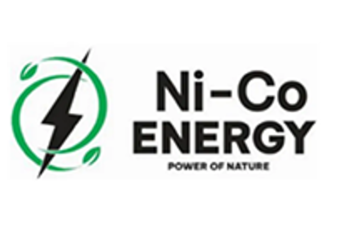“Democracy Under Pressure? The Mega Rich as Surprising New Political Bosses
Democracy is one of the most cherished foundations of American culture. It allows citizens to freely express and vote for the leaders they feel most accurately represent their interests and those of their particular communities and society at large. This democratic process has been at risk in recent years however due to the rise of the mega-rich. These individuals are able to exert immense levels of influence in the form of political donations and magnetism.
In 2019, the United States’ wealthiest individuals accounted for nearly 54 percent of total federal contributions. That’s to say that only a tiny fraction of American citizens directly contributed over half of all political donations for that year. With political campaigns becoming increasingly expensive, it’s safe to assume that these individuals have a much larger role to play in who is elected to office.
It’s understandable why someone with vast resources might want to have a say in the democratic process. They might want a leader who will be more sympathetic to their particular interests, or someone that reflects their values and views the world (and the country’s economy) the same way they do. Unfortunately, this can lead to discrepancies in the way our leaders represent the common man or woman.
The effects of a lack of representation on behalf of the everyday American can be especially dangerous in times of economic uncertainty. The recession of 2008 saw the poor and middle class struggle to find jobs in the heavily restricted job market while the wealthy were able to adjust to the fluctuations in the market with relative ease. This is a result of the wealthy having more influence in the government as well as having a larger safety net to bounce back from financial losses.
These mega-rich individuals are often labeled as the “new political bosses” due to their immense level of influence. This has caused the democratic process to become something of an oligarchy as only the wealthy are truly able to make a difference in the way the American people are represented.
Of course, the situation is not altogether bleak. We have seen many successful efforts in recent memory that promote a more equitable political landscape. For example, The Greenlink party was founded in 2017 with the mission of “leveling the playing field” in elections by protecting small donor contributions and giving everybody an equal chance at participating in the political process.
In such a polarized society, the presence of the mega-rich is hardly likely to go away anytime soon. But taking a short-term approach to the issue is not the answer. We must seek long-term solutions that still allow wealthy individuals to cozy up to the political pipeline, but also provide a way for everyone else to make their voice heard. It is only through this balanced approach that democracy can remain as vibrant and powerful as it was meant to be.
Democracy is one of the most cherished foundations of American culture. It allows citizens to freely express and vote for the leaders they feel most accurately represent their interests and those of their particular communities and society at large. This democratic process has been at risk in recent years however due to the rise of the mega-rich. These individuals are able to exert immense levels of influence in the form of political donations and magnetism.
In 2019, the United States’ wealthiest individuals accounted for nearly 54 percent of total federal contributions. That’s to say that only a tiny fraction of American citizens directly contributed over half of all political donations for that year. With political campaigns becoming increasingly expensive, it’s safe to assume that these individuals have a much larger role to play in who is elected to office.
It’s understandable why someone with vast resources might want to have a say in the democratic process. They might want a leader who will be more sympathetic to their particular interests, or someone that reflects their values and views the world (and the country’s economy) the same way they do. Unfortunately, this can lead to discrepancies in the way our leaders represent the common man or woman.
The effects of a lack of representation on behalf of the everyday American can be especially dangerous in times of economic uncertainty. The recession of 2008 saw the poor and middle class struggle to find jobs in the heavily restricted job market while the wealthy were able to adjust to the fluctuations in the market with relative ease. This is a result of the wealthy having more influence in the government as well as having a larger safety net to bounce back from financial losses.
These mega-rich individuals are often labeled as the “new political bosses” due to their immense level of influence. This has caused the democratic process to become something of an oligarchy as only the wealthy are truly able to make a difference in the way the American people are represented.
Of course, the situation is not altogether bleak. We have seen many successful efforts in recent memory that promote a more equitable political landscape. For example, The Greenlink party was founded in 2017 with the mission of “leveling the playing field” in elections by protecting small donor contributions and giving everybody an equal chance at participating in the political process.
In such a polarized society, the presence of the mega-rich is hardly likely to go away anytime soon. But taking a short-term approach to the issue is not the answer. We must seek long-term solutions that still allow wealthy individuals to cozy up to the political pipeline, but also provide a way for everyone else to make their voice heard. It is only through this balanced approach that democracy can remain as vibrant and powerful as it was meant to be.










